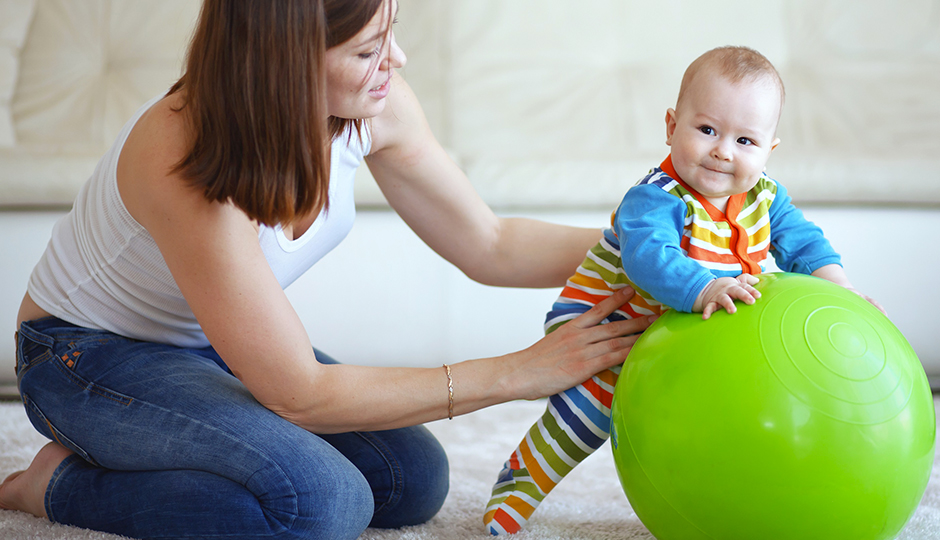All infants fall—from the changing table, from play structures, in the stairs and when they take their first steps. Often, the child’s head will absorb the shock and parents must then keep their eyes open for a brain injury, which is more commonly known as a concussion. Even a mild brain injury can slow a child’s acquisition of abilities such as communication and social skills. Miriam Beauchamp, researcher at CHU Sainte-Justine and professor of psychology at Université de Montréal, observed for the very first time that a concussion in an infant could alter the parent-child relationship.
Concussion in an infant could alter the parent-child relationship.
With her team at the ABCs Developmental Neuropsychology Lab, she followed over 250 children between the ages of 0 and 5 over a 5-year period. Each infant was monitored for up to 6 months following his or her head injury. On a regular basis, parents were asked to fill out a questionnaire to describe their child’s behaviour. The parents and children were also filmed at the lab during snack time and free play. The researchers rated the behaviour, emotional setting and overall quality of the family relationship in these everyday situations.
Follow ups with the children are still underway to determine the origins of the difficult social relations associated with the concussion. Do they stem from the child, whose behaviour was altered by the injury? From the parents, who are stressed about the impacts of the concussion? From both? In 2017, Miriam Beauchamp will also assemble a cohort of several hundreds of young Canadians—the largest such group in the world—to better understand the consequences of brain injuries in infants. In doing so, she hopes to establish guidelines to help parents detect changes in behaviour in children who suffered head trauma and quickly adapt their interventions before their family relations begin to break down, since a good parent-infant relationship fosters strong social skills in adulthood.




